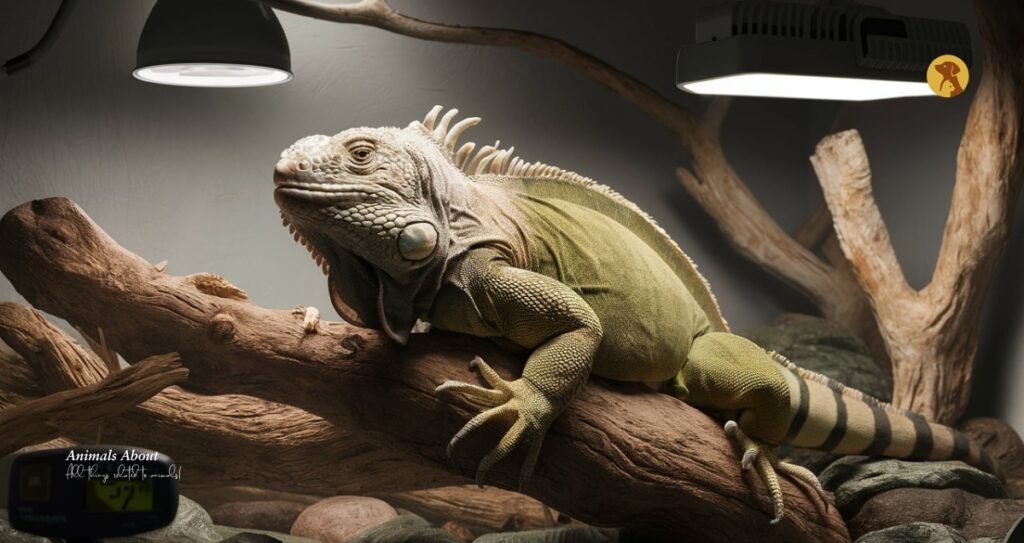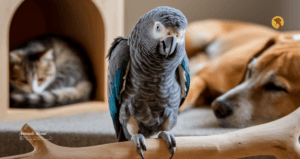Noticing your iguana turning dark can be alarming, especially when accompanied by sluggish behavior. Dark iguana skin isn’t just a cosmetic change—it can signal something serious. This color shift often means your iguana is struggling to stay warm or reacting to environmental stress. Reptiles, especially iguanas, are susceptible to their surroundings. When things go wrong, they let us know through changes in appearance and behavior. If you’ve ever thought, “Why is my iguana suddenly darker?”—you’re not alone. It could be the first sign of an underlying issue that needs immediate attention.
Understanding Sluggish Iguana Behavior: More Than Just Laziness
When your once energetic lizard becomes sluggish and unresponsive, it’s time to take a closer look. Sluggish iguana behavior is a strong indicator of internal discomfort. Unlike mammals, Iguana turning dark can’t generate their own body heat. A drop in enclosure temperature can slow their bodily functions, leading to lethargic iguana signs such as reduced movement, loss of appetite, and general inactivity. They may refuse to bask, or worse, stay hidden for long periods. This kind of behavior could also reflect emotional stress or physical illness. Remember, an iguana not moving much is never just “tired.” It’s a call for help.
Iguana Color Change Meaning: What Is Your Pet Trying to Tell You?
Color changes in reptiles often carry deep biological significance. For iguanas, darker shades typically mean discomfort or distress. The iguana color change meaning varies, but common causes include sudden temperature drop in reptile enclosures, poor UVB lighting, or emotional iguana stress signs. Unlike some lizards that change color for camouflage, iguanas shift to darker hues to absorb more heat or express fear. You might see a dark patch along their body or even an overall muddy tone. These changes can be reversible if caught early, but ignoring them could allow health issues to escalate quickly.
Dark Iguana Skin and Cold Conditions: A Dangerous Duo
If your iguana appears cold and its skin is dark, you could be witnessing the start of a severe issue. Iguana cold and dark in color is a sign their core temperature is too low. Without access to proper heat, their metabolism slows down, leading to a change in iguana behavior. A dark iguana in a cold environment is not just uncomfortable—it’s at risk for hypothermia and other life-threatening conditions. Always ensure your iguana’s basking area is between 95°F–100°F, while the ambient temperature should stay around 80°F–85°F. At night, temperatures should never fall below 75°F. Even a few degrees off can have major impacts on their health.
Signs of a Sick Iguana: Don’t Wait Until It’s Too Late
How do you know if your pet is sick or just moody? Recognizing the signs of a sick iguana can be lifesaving. Watch for a mix of these symptoms: darkening skin, sunken eyes, weak limbs, unusual hiding, or significant appetite loss. Reptile health warning signs often show up slowly, but once they appear, time becomes critical. You may also notice changes in iguana basking habits, including refusing to sit under the heat lamp or basking for shorter periods. These are not quirks. They’re cries for help. If these issues persist, consult a vet trained in exotic animal care.
UVB Lighting and Lguana Turning Dark Metabolic Bone Disease Symptoms
UVB lighting isn’t just optional—it’s essential. Without it, iguanas can’t synthesize vitamin D3, which is necessary for calcium absorption. The result? Weak bones and slow movement. One of the most common reptile ailments is iguana metabolic bone disease, caused by poor lighting or diet. Metabolic bone disease symptoms include tremors, crooked limbs, jaw swelling, and—you guessed it—dark iguana skin due to stress. Replace UVB bulbs every 6 months, and ensure your iguana has 10-12 hours of light exposure daily. Neglecting UVB needs is a fast track to long-term health issues.
Stress or Illness? How to Read Your Iguana’s Behavior
Behavioral shifts are your pet’s way of speaking to you. A normally active iguana that suddenly seems antisocial might be reacting to iguana stress or illness. Whether it’s a new enclosure setup, loud noises, or improper handling, stress plays a major role in health decline. If your iguana stops eating, avoids basking, or hides often, ask yourself: Has something changed? Even subtle environmental shifts can cause an iguana behavior change. Emotional stress and physical illness often overlap in symptoms, so always monitor your pet closely.
When to Take Your Lguana Turning Dark to the Vet: Don’t Wait for It to Get Worse
There’s never a bad time to get expert advice, but there is such a thing as too late. If you’ve observed multiple signs—like color change, lethargy, poor appetite, and abnormal posture—don’t delay. Knowing when to take an iguana to a vet could mean the difference between recovery and deterioration. Look for exotic pet vets experienced with reptiles. They’ll be able to check for infections, parasites, bone density, and more. Trust your instincts—if your iguana doesn’t look or act right, there’s probably a reason.
If you’re curious about caring for other unique pets, check out our guide to the best exotic animals to keep as pets.
Stay Alert, Stay Informed, Save Your Iguana
Your iguana depends on you for everything—from food to heat to safety. Spotting an iguana turning dark or becoming sluggish might seem like a small issue at first, but it can quickly snowball into a serious health crisis. Regularly check temperature, lighting, and diet. Observe behavior. Stay consistent. Whether it’s iguana UVB lighting needs, iguana not active, or signs of stress, every detail matters.
Be proactive, not reactive—because early care is always better than emergency care.
Disclaimer: This article is for informational purposes only. Always consult a certified reptile veterinarian for professional diagnosis and care. Visit animalsabout.org for more expert insights on pet health.







